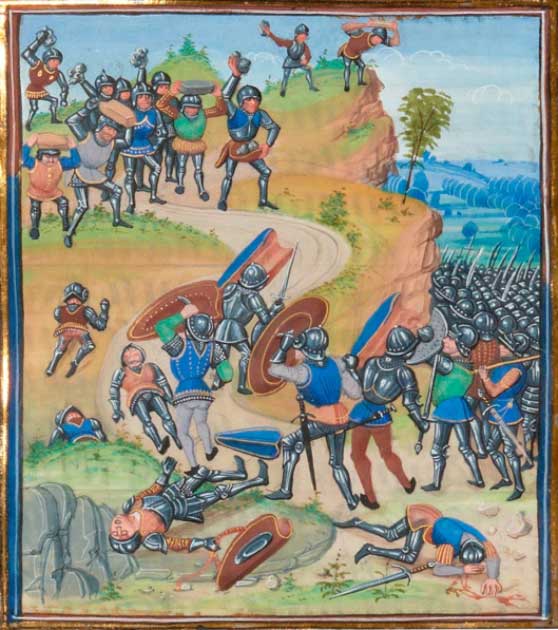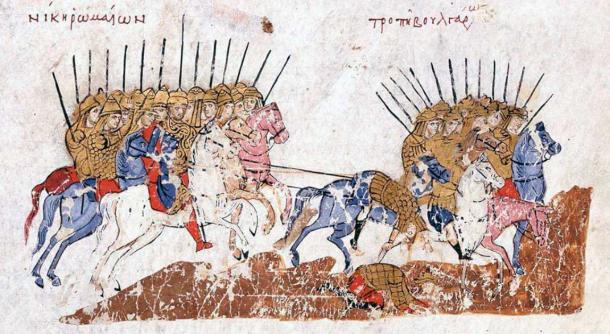The Word ‘Freelancer’ Originates with Medieval Mercenaries
Even though the word freelancer often feels omnipresent, very few know its etymology. In fact, freelancers have been around for a long time. The word freelancer has been traced back to Sir Walter Scott’s Ivanhoe, a romantic novel published in 1820 which is set in 12th century England. Ivanhoe was included in a list of 100 Novels that Shaped Our World compiled by the BBC, due to its influence in renewing interest in chivalric romance and the Middle Ages in general. But that’s not the only way in which Ivanhoe has left a mark. Within the novel, one mercenary makes reference to his “Free Lances,” a term to denote his paid army of mercenaries.
“I offered Richard the service of my Free Lances, and he refused them—I will lead them to Hull, seize on shipping, and embark for Flanders; thanks to the bustling times, a man of action will always find employment,” stated Maurice de Bracy, the leader of a gang of mercenaries known as the Free Companions in Scott’s adventure story. This made reference to the warrior’s lance being “free,” a term which denoted that he was free of any political allegiances.

The French army is defeated by the Grandes Compagnies, bands of freelancing mercenaries ravaging France during the Hundred Years War. (Public domain)
Referred to as the “world’s second-oldest profession,” mercenaries have been a reality of warfare throughout history. Mercenaries were, and are, fighters taking part in conflicts for personal gain, much like hired guns. According to Mythic Scribes, the earliest reference to mercenaries was discovered within the Amarna Letters, unearthed in Tell el-Amarna, Egypt, which date back to 2500 BC. Greek mercenaries are frequently mentioned in the historic archive, while the late Roman Empire contracted bands of “barbarians” to help them defend the Byzantine Empire.
The Byzantine Emperor Andronicus II famously hired the Catalan Grand Company to fight off invading Ottoman Turks, while the 10th century Emperor Basil II hired the Varangian Guard as personal bodyguards made up of Viking mercenaries. Medieval England also used freelancing mercenaries, such as the use of Flemings within the ranks of William the Conqueror. By the 12th century, free companies, or armies of mercenaries, were used across Europe, such as during the Hundred Years’ War.

Medieval lancers from the Byzantine empire. (Public domain)
This vividly expressive 19th century word captured the popular imagination, and was soon being used in other contexts. By the end of the 1860s, freelance was being used as a figurative noun, and in 1903 the Oxford English Dictionary had regognized it as a verb. The author P. G. Wodehouse used the term “free-lance,” in his 1926 story The Inferiority Complex of Old Sippy, in describing the carefree life of a freelance writer, as compared to his gloomy existence as a salaried editor. While some criticize freelancer exploitation in today’s world, especially due to the lack of legal protection, one can use the empowering metaphor of Scott’s “Free Lance” mercenary, to understand the freedom of working to the beat of your own drum.
Top image: While the term freelancer was coined in the 19th century, freelancing mercenaries have been a reality of warfare throughout history. In the image, tournament lancers from the Album of Tournaments and Parades in Nuremberg. Source: Met Museum / Public domain
By Cecilia Bogaard


















Comments
It's not going so well for the freelancers in Ukraine.